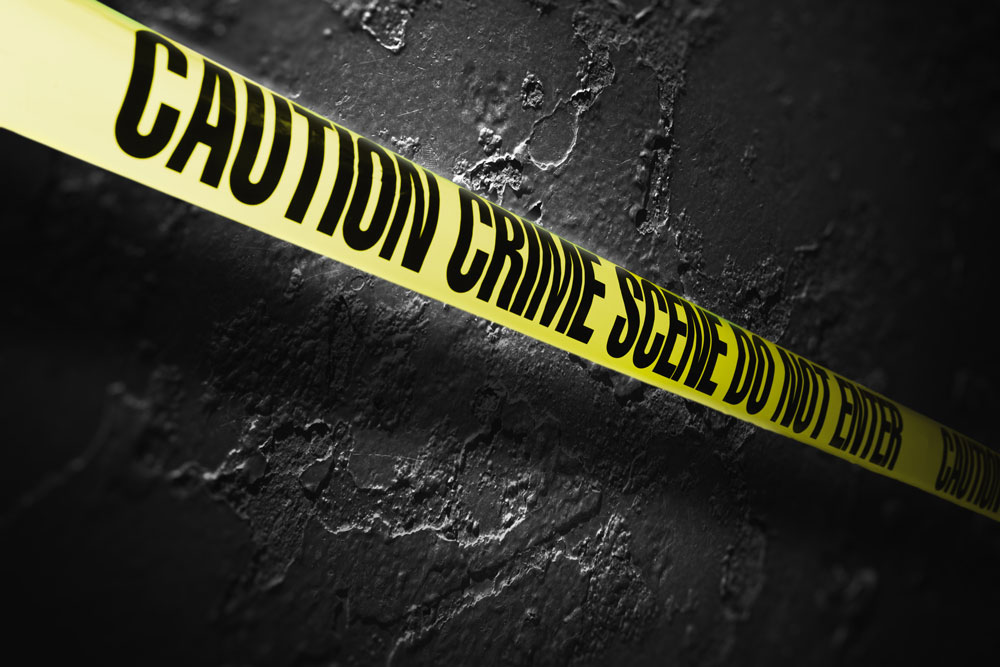Who Cleans Up After A Death

CONTENTS
- What is trauma cleaning?
- The dangers of trauma cleaning
- Why it should always be left to professional trauma cleaners
- What you should do when a death occurs on your property
- Contact us today
When a death occurs on someone's property, it is their responsibility to have the trauma scene cleaned up. Removing biohazards including blood and bodily fluids is essential to make the area safe to re-enter.
At ICE Cleaning, our fully trained trauma cleaners have been accredited by a range of organisations including the National Association of Crime Scene Cleaners, and can quickly restore the trauma scene to its previous condition. We are available nationwide, 24/7, 365 days a year.
Keep reading to learn more about after-death cleanup.
What is trauma cleaning?
Trauma cleaning, sometimes called biohazard clean-up, is the process of making trauma scenes (where things like deaths or serious injuries occur) safe and clean again. It is not something that can be performed with household cleaning products. It requires specialist cleaning chemicals and techniques to address the biohazards present.
The first step of trauma cleaning involves an initial assessment of the scene. Professionals will assess the extent of contamination to determine the necessary safety measures and cleaning procedures. They wear personal protective equipment (PPE) to safeguard against biohazards throughout the entire cleaning process.
Next, they will carry out biohazard removal. This includes eliminating blood, bodily fluids, and other potentially infectious materials. After removing biohazards, they will carry thoroughly clean and decontaminate the affected area. Specialists use professional-grade cleaners and disinfectants designed to eliminate bacteria and viruses.
Oftentimes, odours can linger long after a death has occurred. Deodorisation is employed by professionals using advanced techniques such as ozone treatment or hydroxyl generators. Finally, the trauma cleaners will dispose of the biohazardous material according to local regulations.
You can learn more about what happens during a trauma clean in this blog.
The dangers of trauma cleaning
Clean up after a death is not only emotionally taxing but also poses significant health risks. This task should always be handled by professional trauma cleaners who are trained to manage these situations safely and effectively.
Exposure to biohazards
One of the primary dangers of crime scene cleaning is exposure to biohazards. Exposure to blood, for example, can put you at risk of contracting bloodborne pathogens like hepatitis B and C or HIV if proper precautions are not taken. Professional cleaners wear PPE and follow strict protocols to mitigate these risks.
Risk of injury
Depending on the cause of the death, there may be weapons or drug paraphernalia at the scene which might be contaminated with pathogens, and cause injury when picked up or touched. They will also need to be disposed.
Use of potentially harmful chemicals
Beyond the biological threats, the strong disinfectants required for biohazard cleanup can cause respiratory problems and skin irritation if not used safely, in a well-ventilated area, or with PPE.
Why it should always be left to professional trauma cleaners
Trauma cleaners have the training, specialist equipment, and PPE to safely and thoroughly clean a trauma scene. They will have experience adhering to the strict safety standards set by regulatory bodies like Health and Safety Executive and can provide a sensitive, discreet service. Specialist cleaners will also know how to correctly dispose of the biohazardous waste.
Trauma cleaners can take care of this sensitive, difficult process for you, and give you peace of mind that your property will be made safe again. They can quickly restore your property to its previous condition and make it look as if the incident never occurred.
What you should do when a death occurs on your property
First, contact the emergency services without delay to notify them that someone has passed away.
Secondly, limit access to the area. This will enable the police to carry out an investigation if one is required.
After any legal procedures have concluded and you are allowed to re-enter the property, contact professional trauma cleaners immediately. ICE Cleaning's trauma cleaners can be on site within a matter of hours in an emergency, no matter where you are in the UK.
If you are a landlord and a tenant has died unexpectedly in your rental property, you can find out more about what to do in this blog.
Contact us today
Our trauma cleaners have many years of experience cleaning up undiscovered deaths, road traffic accidents, and crime scenes.
To learn more about our trauma cleaning services, get in touch with our friendly team today on 0208 066 0360 or enquiries@icecleaning.co.uk.

Speak with me today,
I’m here to help
By asking you a few questions either via phone or email I can immediately provide a realistic estimation of the cost.

Why choose us?
- Cater to a wide variety of cleaning situations
- Nationwide coverage, available 24/7
- Cater to commercial and domestic clients
- Free survey provided prior to quotation
- Emergency response team
- Offer a bespoke service designed to suit all your needs
- All technicians hold professional health and safety qualifications, including BICSc, IOSH, Dewpoint Professional & Safe Contractor
We’re fully accredited
We place best practise, professional expertise and health and safety at the core of our business. We’re fully compliant with all legal obligations. You can view a list of our accreditations below, or visit our Health & Safety page for more information.











-RGB-small.1707319151.jpg)




















